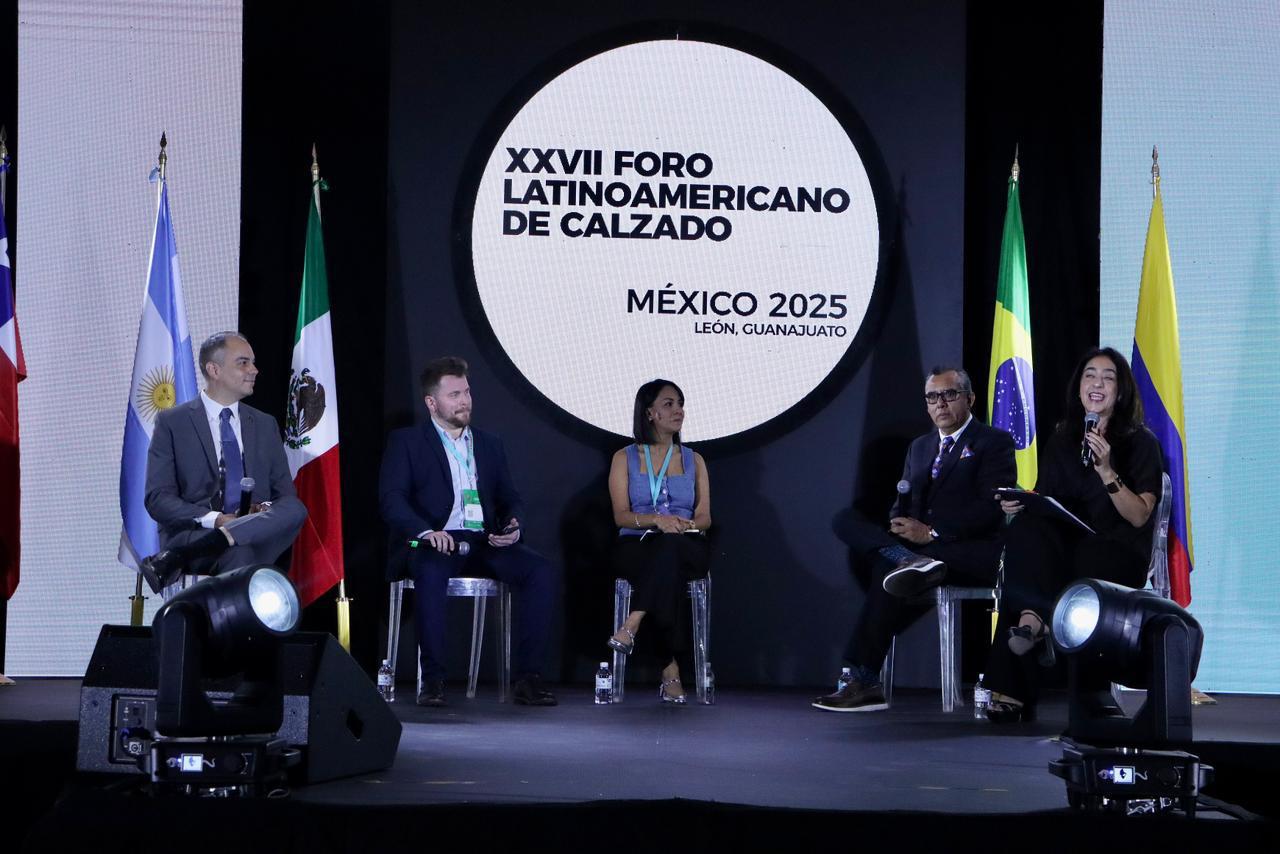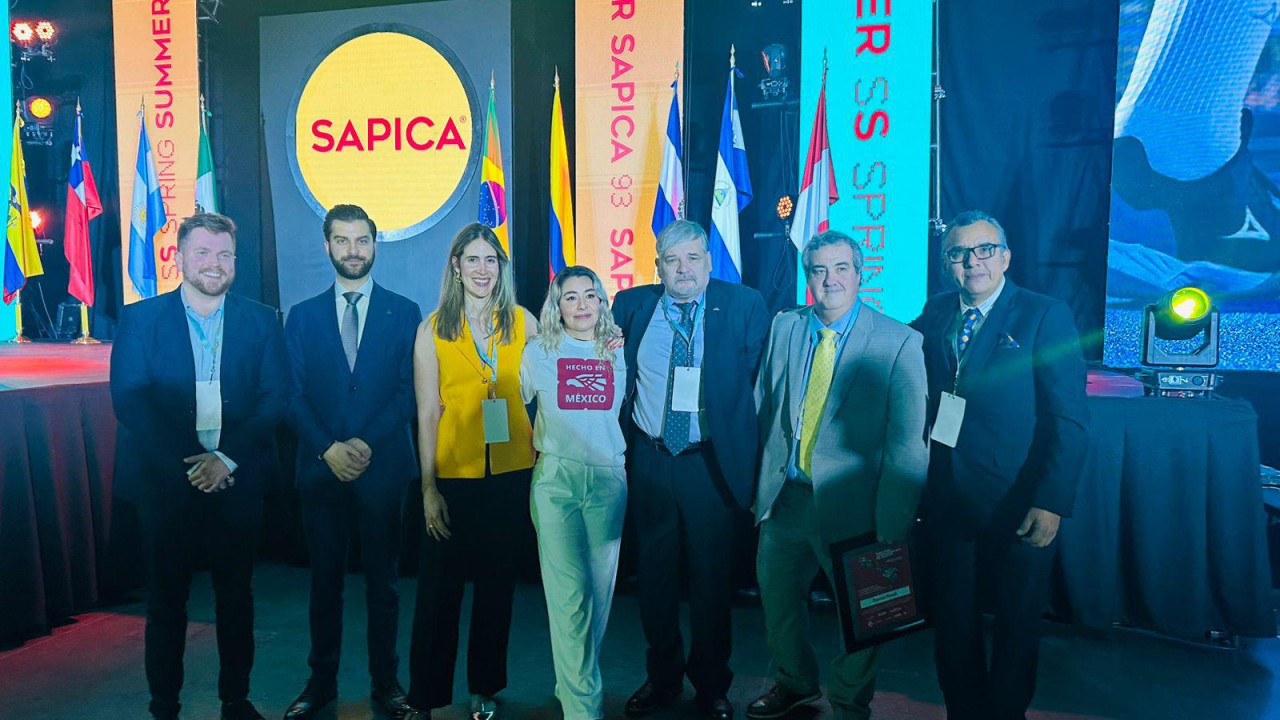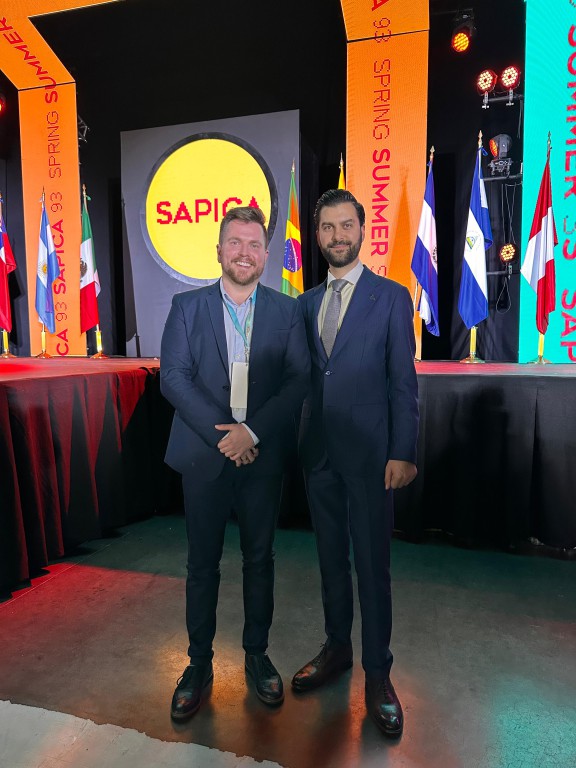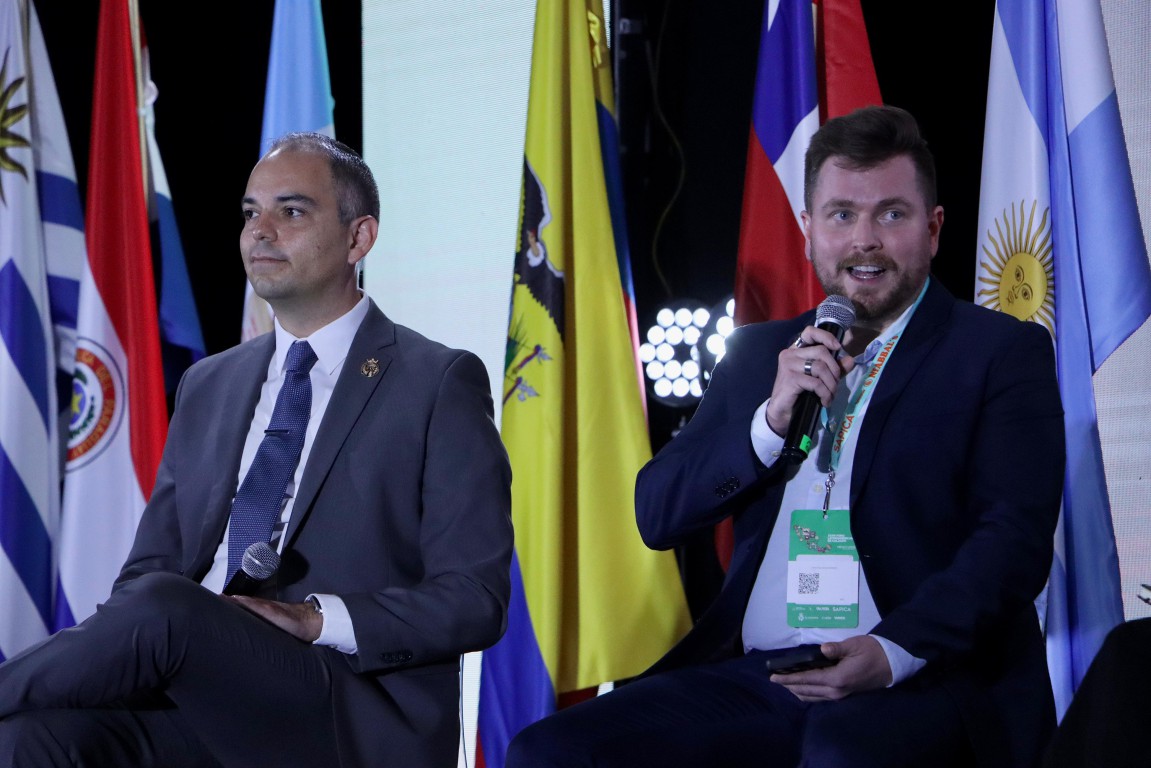Sustainability and regional integration take center stage at the Latin American Footwear Forum
The Latin American Footwear Forum, held August 13–15 in León, Guanaju...

Representing Brazil’s footwear industry, the Brazilian Footwear Industries Association (Abicalçados) took part in the 27th edition of the Latin American Footwear Forum, held August 13–15 in León, Guanajuato, Mexico. The association was represented at the event by its Marketing and Strategy Manager, Cristian Schlindwein.
Taking part in the panel “Sustainability and Social Responsibility,” Schlindwein spoke about ESG practices within Brazil’s footwear production chain. According to him, being a sustainable company in the Latin American context means incorporating environmental, social, and governance criteria in a cross-cutting way, creating value that goes beyond the final product. “Sustainability, in all its dimensions, generates value that extends beyond the product, positively impacting the supply chain and the community,” said the manager, adding that the future of footwear consumption will be driven by renewable materials, circular models, and full transparency across the value chain.
Sustainable Origin
The executive also explained that, with the goal of certifying footwear production chain companies in line with ESG practices, Abicalçados—together with the Brazilian Association of Leather, Footwear, and Manufactured Goods Companies (Assintecal)—created Sustainable Origin, the world’s only ESG certification designed specifically for the footwear production chain. “Sustainable Origin demonstrates that it is possible to measure and certify ESG practices in an objective way within the footwear sector. Today, we have 115 companies certified or in the certification process, proving that sustainability and competitiveness go hand in hand,” he emphasized.
Advances
On the occasion, Schlindwein also presented data demonstrating concrete advances in the sustainability of Brazil’s footwear industry. In the environmental dimension, for example, he highlighted that 80% of the companies certified by Sustainable Origin use renewable or recycled materials; 65% have adopted energy-efficiency systems or renewable energy sources; and 58% run water management and reuse programs. In the social dimension, according to the executive, 72% of certified companies invest in employee training; 60% develop community projects; and 55% promote diversity and inclusion policies. Finally, in the governance dimension, Schlindwein noted that 70% of certified companies publish sustainability reports; 68% have supply chain traceability; and 62% maintain codes of ethics and anti-corruption policies. “The reception was very positive, and the interest in the program was clear in the questions about how to implement best practices in companies from other countries,” he said.
Regional Integration
Also at the Forum, Schlindwein took part in the traditional meeting of the Latin American Footwear Chambers Group (Accal), where discussions focused on strengthening joint action as a regional bloc. The meeting established more frequent remote sessions for alignment and project follow-up, identified priority topics for joint initiatives to combat counterfeiting, harmonize labeling, provide joint institutional support on issues affecting member countries, and develop a study aimed at promoting tariff negotiations among bloc countries, encouraging production and trade exchange.
For Schlindwein, the current moment of international instability—driven by U.S. tariffs imposed on key trading partners—creates an opportunity to strengthen commercial and institutional ties with Latin American countries. “The Forum proved to be a space for dialogue and coordination, where relevant issues for the entire bloc were discussed,” he emphasized.
On August 15, the Forum offered a technical and cultural immersion in the city of León and its surrounding region. The program began with participants visiting the Flexi factory, one of Mexico’s leading footwear companies, recognized for its innovation in design and production processes.
The Event
The Latin American Forum, which in 2024 was held in Brazil, is an initiative of Accal that takes place annually in different countries to discuss issues related to the footwear industries of the region.




